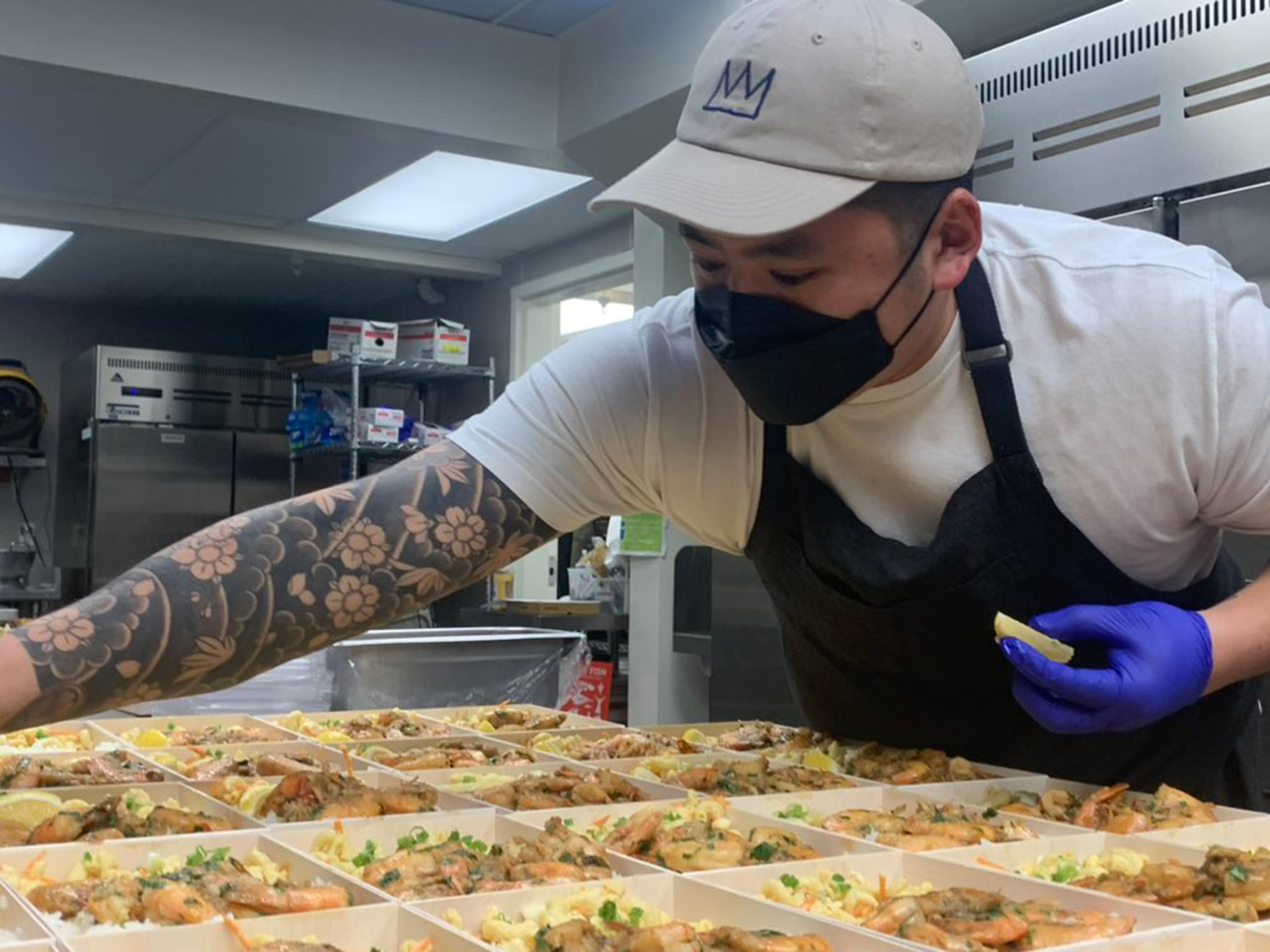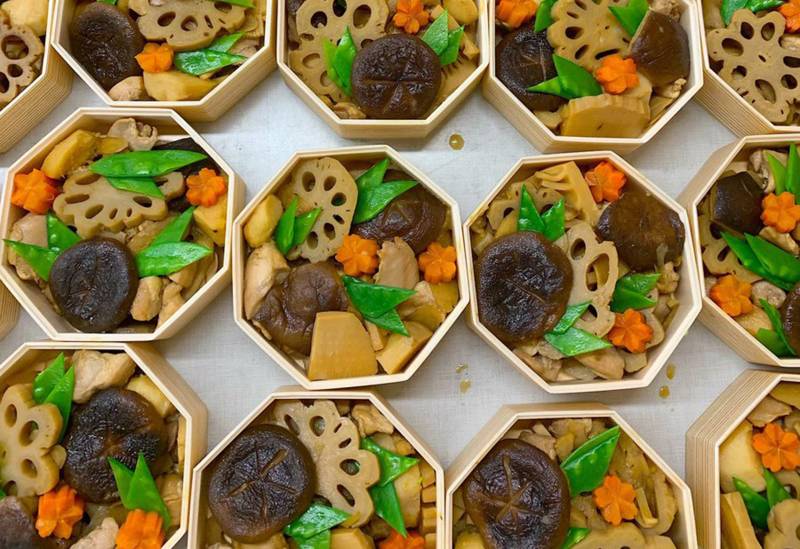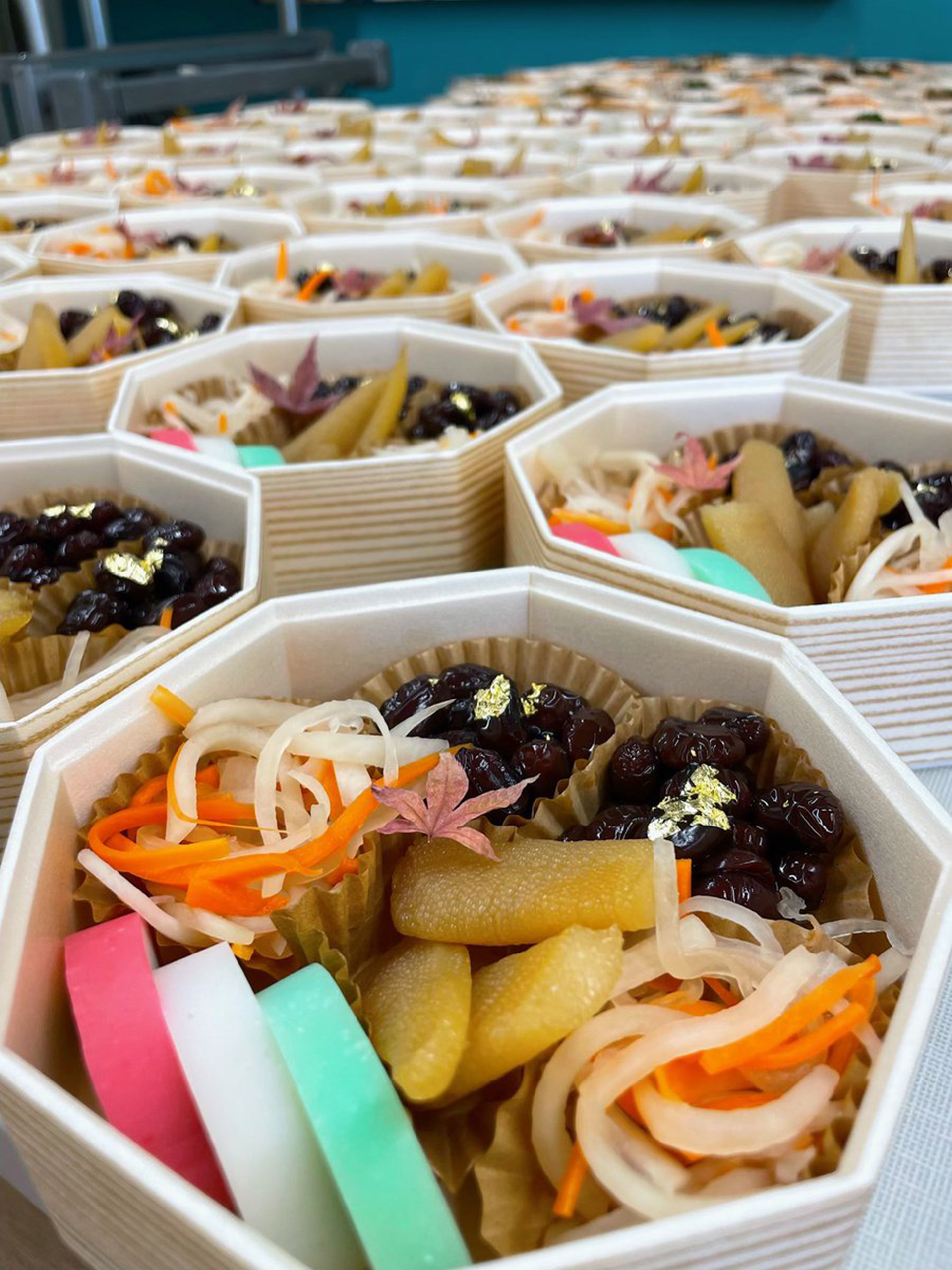As a teenager growing up in the East Bay, Yuji Ishikata veered away from formal schooling. Instead, he gained his education by working at local restaurants and grocery stores, including Berkeley Bowl and Tokyo Fish Market. As a Yonsei — a fourth-generation Japanese American — that’s where he embraced his community of elders and peers while developing a love for culinary expression.
Now a chef with over 15 years of experience in the food industry, Ishikata is inviting others to experience the tight-knit traditions he was raised around. And for him, there’s nothing more representative of those traditions than Japanese New Year, which he’ll ring in with a one-day pop-up featuring dishes rooted in the childhood nostalgia and intergenerational joy inherent to the holiday.
“There’s so many different types of foods that represent different aspects of life in Japanese culture,” says Ishikata, who currently works as the Nutrition Program Chef at J-Sei, a senior-focused Asian American cultural center. “I remember those smells. These are things my grandma, aunties and uncles cooked every New Year. I want to modernize it and introduce it to anyone who wants food that represents the Japanese New Year with love and soul put into it.”

Ishikata recalls an open-door policy among older Japanese immigrants and Japanese American neighbors who would serve special holiday dishes for friends and guests as a way to start the calendar year with community, intention and gratitude. That’s the spirit Ishikata is bringing to his New Year’s pop-up, a collaboration with Berkeley’s Tokyo Fish Market that he’s calling “Oshogatsu Offering.”
The menu will offer four meal options: an ozoni soup kit, for making a fish broth–based mochi soup that Japanese households eat on New Year’s Day; hamachi kama (the fatty, oily collar of yellowtail fish marinated in sake pulp); a temaki hand roll kit — a create-your-own-adventure food experience that allows diners to make their own sushi with spicy tuna, salmon skin and roe, pickled plums, shiso and more; and the osechi ryori box, the traditional full-fledged holiday meal whose components — including chikuzenni (simmered chicken and root vegetables), umami no ebi (simmered shrimp) and namasu (daikon and carrot salad) — are served up in decorative boxes.



